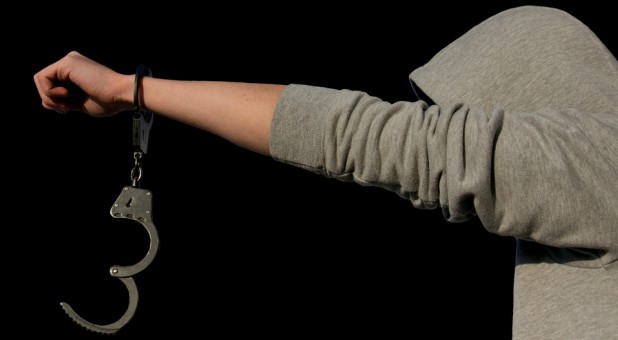What About the American Youth Behind Bars? Here’s What You Can Do to Help
“Open your mouth for the speechless in the cause of all such as are appointed to destruction. Open your mouth, judge righteously, and plead the cause of the poor and needy” (Prov. 31:8-9).
Marked as “Second Chance Month,” April has come and gone. Yet juvenile justice remains an issue that people of faith must prioritize. Nationwide, thousands of forgotten children are trapped within the maze of the juvenile justice system. Even while national debate rages over family separation on the U.S. border, stats reveal there are 60,000 American youth behind bars.
These youth are generally subjected to the harshest of conditions, separation from their families and exposure to traumas that can have lasting mental and behavioral effects. The maltreatment of youth in correctional facilities across this country must end. That’s why we are calling on fellow Christians to not only reflect on how our current system treats youth in trouble with the law but also take action to support all of God’s children.
The current state of the youth justice system is inhumane, unfair and lies in stark contrast to God’s vision of justice. Instead of a system committed to forgiveness and restoration for all, we have a system that traumatizes young people and condemns youth of color for actions that it forgives their white peers.
We incarcerate more youth than any other country; we sentence youth to die in prison; and we lock youth up for “crimes” like truancy. This is neither fair nor moral. And although there are steps that Congress can take towards a more just society, each of us can take action in our own communities.
God calls us to prioritize redemption over punishment, serving our young people in ways that repairs the harm to victims and restores young people to their full potential. Yes, our young people make mistakes, but Jesus calls on us to forgive just as he has so graciously done with us.
3 Steps You Can Take Today
It would be easy to continue mixing our faith with the politics of the day. Regardless of how any administration handles the issues of youth justice, we should be staunch advocates for the oppressed and disenfranchised.
We should seek first to love and heal those that are the least among us. It is our duty as Christians to take concrete steps to ensure that every member of our society is treated with dignity and respect.
Here are three ways you can support youth justice reform this summer:
- Educate your congregation about the problems with our youth justice systems. Then get collectively and individually involved in local efforts to change our systems so that youth are held accountable in ways that recognize their humanity and dignity. Learn who you can connect with at the National Juvenile Justice Network.
- Young people in detention centers and prisons are often far from their families and other supports. More often than not, these facilities do not have adequate education, recreation, arts and other activities. By volunteering at a youth detention center, you demonstrate that these young people are loved and not forgotten, helping to set them on a path for success upon their release.
- Mobilize your congregation in support of legislation that promotes restorative justice programs, in which the young person takes responsibility for their actions by restoring the harm to the victim.
Now is the time to act and be Jesus’ hands and feet to ensure justice for all our children. In far too many ways, our justice systems function contrary to Christ’s teachings of hope, healing and a new purpose for each life.
The good news is that there is a moral uprising across the country, with individuals and congregations stepping out to reaffirm these core values. We urge you to take a stand for justice by getting involved today.
Follow the links above to learn more and take action in your community. {eoa}
Josh Gordon is the communications manager for the National Juvenile Justice Network and a graduate of Liberty University. The National Juvenile Justice Network is composed of coalitions, organizations and alumni of the Youth Justice Leadership Institute across 41 states and the District of Columbia, all of whom advocate for a fairer justice system for children and teens.
Branden Polk is a senior associate for justice and child welfare at The Clapham Group, a licensed social worker, and a graduate of the College of William & Mary and George Mason University. The Clapham Group represents and consults clients working to address modern-day injustices and promote the common good, believing that renewing the culture and confronting injustice must be undertaken together if anyone is to succeed in improving the lives of individuals and families.














































